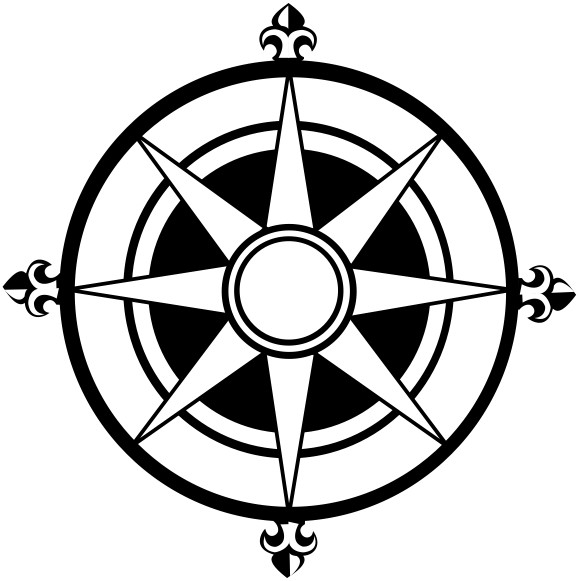American Council on Immersion Education (ACIE) Newsletter Articles Online Archive
| The Bridge: From Research to Practice |
School Profiles | ||
| Best Practices | Research Reports | ||
| Immersion 101 | Guest Editorials | ||
| Points for Parents | Techno Tips | ||
| Student & Teacher Voices | Immersion Milestones |
Search the ACIE Archives |
Meet the Editorial Staff |
![]() Note: All of The Bridge and Thematic Issues articles are in PDF format (requires Acrobat
Reader).
Note: All of The Bridge and Thematic Issues articles are in PDF format (requires Acrobat
Reader).
+
 From 2002-2010, the ACIE Newsletter has published theme-specific issues each May. Theme issues facilitate the exploration of a topic from a variety of practitioner perspectives and in greater depth.
From 2002-2010, the ACIE Newsletter has published theme-specific issues each May. Theme issues facilitate the exploration of a topic from a variety of practitioner perspectives and in greater depth.
Thematic Issues
 From 2002-2010, the ACIE Newsletter has published theme-specific issues each May. Theme issues facilitate the exploration of a topic from a variety of practitioner perspectives and in greater depth.
From 2002-2010, the ACIE Newsletter has published theme-specific issues each May. Theme issues facilitate the exploration of a topic from a variety of practitioner perspectives and in greater depth.
| Math Instruction | May 2010 | |
| Bilingualism and Beyond | May 2009 | |
| Mandarin Immersion | May 2008 | |
| 10th Anniversary Issue | May 2007 | |
| Writing Development | May 2006 | |
| Pathways to Bilingualism Conference | May 2005 | |
| Struggling Learners | May 2004 | |
| Secondary Immersion | May 2003 | |
| Immersion Education Down Under | May 2002 |
+
 Educational research
is vital to validating effective practices, challenging ineffective
ones, and encouraging innovations. Yet research is only valuable
if teachers read and implement findings in their classrooms.
The Bridge feature
is included as an insert to encourage teachers to collect
them for future reference. We hope this pull-out insert will
help immersion teachers stay abreast of the latest research
and allow it, when applicable, to affect their own practice.
Educational research
is vital to validating effective practices, challenging ineffective
ones, and encouraging innovations. Yet research is only valuable
if teachers read and implement findings in their classrooms.
The Bridge feature
is included as an insert to encourage teachers to collect
them for future reference. We hope this pull-out insert will
help immersion teachers stay abreast of the latest research
and allow it, when applicable, to affect their own practice.
The Bridge: From Research to Practice
 Educational research
is vital to validating effective practices, challenging ineffective
ones, and encouraging innovations. Yet research is only valuable
if teachers read and implement findings in their classrooms.
The Bridge feature
is included as an insert to encourage teachers to collect
them for future reference. We hope this pull-out insert will
help immersion teachers stay abreast of the latest research
and allow it, when applicable, to affect their own practice.
Educational research
is vital to validating effective practices, challenging ineffective
ones, and encouraging innovations. Yet research is only valuable
if teachers read and implement findings in their classrooms.
The Bridge feature
is included as an insert to encourage teachers to collect
them for future reference. We hope this pull-out insert will
help immersion teachers stay abreast of the latest research
and allow it, when applicable, to affect their own practice.
+
 Sharing ideas that work is the emphasis of this regular feature. Program administrators can learn about school-wide initiatives that promote immersion principles. Classroom teachers can read about tried and true, practical instructional techniques that they might adopt for their classrooms.
Sharing ideas that work is the emphasis of this regular feature. Program administrators can learn about school-wide initiatives that promote immersion principles. Classroom teachers can read about tried and true, practical instructional techniques that they might adopt for their classrooms.
Best Practices
 Sharing ideas that work is the emphasis of this regular feature. Program administrators can learn about school-wide initiatives that promote immersion principles. Classroom teachers can read about tried and true, practical instructional techniques that they might adopt for their classrooms.
Sharing ideas that work is the emphasis of this regular feature. Program administrators can learn about school-wide initiatives that promote immersion principles. Classroom teachers can read about tried and true, practical instructional techniques that they might adopt for their classrooms.
+
 If we peel back the layers that currently envelop immersion schools, what might we find at the core? In this column we will share with readers basic principles behind successful immersion programs, and show how challenges have been met at the classroom, school, and district level.
If we peel back the layers that currently envelop immersion schools, what might we find at the core? In this column we will share with readers basic principles behind successful immersion programs, and show how challenges have been met at the classroom, school, and district level.
Immersion 101
+
 Parents often are looking for a place to access ideas about how to support their children’s education. Immersion parents who may or may not be fluent in the language their child is learning at school have many questions and concerns.
In this regular feature, we offer concrete suggestions for extracurricular support of language learning. In addition, we address specific parent concerns and invite parents to share their experience and expertise.
Parents often are looking for a place to access ideas about how to support their children’s education. Immersion parents who may or may not be fluent in the language their child is learning at school have many questions and concerns.
In this regular feature, we offer concrete suggestions for extracurricular support of language learning. In addition, we address specific parent concerns and invite parents to share their experience and expertise.
Points for Parents
 Parents often are looking for a place to access ideas about how to support their children’s education. Immersion parents who may or may not be fluent in the language their child is learning at school have many questions and concerns.
In this regular feature, we offer concrete suggestions for extracurricular support of language learning. In addition, we address specific parent concerns and invite parents to share their experience and expertise.
Parents often are looking for a place to access ideas about how to support their children’s education. Immersion parents who may or may not be fluent in the language their child is learning at school have many questions and concerns.
In this regular feature, we offer concrete suggestions for extracurricular support of language learning. In addition, we address specific parent concerns and invite parents to share their experience and expertise.
+
 There has been dramatic growth in the number of immersion programs during the last decade. More and more communities have chosen to support this educational option, whose benefits to students are well documented. In this feature we spotlight immersion schools and explore factors that make each one unique.
There has been dramatic growth in the number of immersion programs during the last decade. More and more communities have chosen to support this educational option, whose benefits to students are well documented. In this feature we spotlight immersion schools and explore factors that make each one unique.
School Profiles
 There has been dramatic growth in the number of immersion programs during the last decade. More and more communities have chosen to support this educational option, whose benefits to students are well documented. In this feature we spotlight immersion schools and explore factors that make each one unique.
There has been dramatic growth in the number of immersion programs during the last decade. More and more communities have chosen to support this educational option, whose benefits to students are well documented. In this feature we spotlight immersion schools and explore factors that make each one unique.
+
 In an effort to push the edge of what we currently know about learning, researchers continue to design and publish new studies on issues important to immersion education. Keeping up to date with current research is a time-consuming task.
This regular feature will help inform the immersion education public about recent research by providing our readers with brief summaries of selected studies.
In an effort to push the edge of what we currently know about learning, researchers continue to design and publish new studies on issues important to immersion education. Keeping up to date with current research is a time-consuming task.
This regular feature will help inform the immersion education public about recent research by providing our readers with brief summaries of selected studies.
Research Reports
 In an effort to push the edge of what we currently know about learning, researchers continue to design and publish new studies on issues important to immersion education. Keeping up to date with current research is a time-consuming task.
This regular feature will help inform the immersion education public about recent research by providing our readers with brief summaries of selected studies.
In an effort to push the edge of what we currently know about learning, researchers continue to design and publish new studies on issues important to immersion education. Keeping up to date with current research is a time-consuming task.
This regular feature will help inform the immersion education public about recent research by providing our readers with brief summaries of selected studies.
+
 This features provides anyone interested in immersion education with an opportunity to voice your thoughts and concerns.
This features provides anyone interested in immersion education with an opportunity to voice your thoughts and concerns.
Guest Editorials
 This features provides anyone interested in immersion education with an opportunity to voice your thoughts and concerns.
This features provides anyone interested in immersion education with an opportunity to voice your thoughts and concerns.
+
 Technology and second language education are a natural match, as both enable us to explore our multilingual world more directly. In this column, Techno Tips, we highlight successful applications of technology in and around the immersion classroom
Technology and second language education are a natural match, as both enable us to explore our multilingual world more directly. In this column, Techno Tips, we highlight successful applications of technology in and around the immersion classroom
Techno Tips
 Technology and second language education are a natural match, as both enable us to explore our multilingual world more directly. In this column, Techno Tips, we highlight successful applications of technology in and around the immersion classroom
Technology and second language education are a natural match, as both enable us to explore our multilingual world more directly. In this column, Techno Tips, we highlight successful applications of technology in and around the immersion classroom
+
 Immersion teachers often look to research and experiences of other educators to inform their curriculum planning and instruction. In this feature we hear what students and teachers think about immersion learning and teaching
Immersion teachers often look to research and experiences of other educators to inform their curriculum planning and instruction. In this feature we hear what students and teachers think about immersion learning and teaching
Student & Teacher Voices
 Immersion teachers often look to research and experiences of other educators to inform their curriculum planning and instruction. In this feature we hear what students and teachers think about immersion learning and teaching
Immersion teachers often look to research and experiences of other educators to inform their curriculum planning and instruction. In this feature we hear what students and teachers think about immersion learning and teaching
| Ten Reasons to Become an Immersion Teacher in an Indigenous Language |
May 2007 |
Keiki K.C. Kawai‘ae‘a |
| Ten Things I Wish I’d Known as an Immersion Teacher |
May 2007 |
Mandy Fleming |
| Ten Quotes from Early French Immersion Students | May 2007 |
Merrill Swain & Sharon Lapkin |
+
 As immersion education progresses through its fourth decade in the U.S., schools around the country have much to celebrate. In this occasional feature we join the well-deserved festivities.
As immersion education progresses through its fourth decade in the U.S., schools around the country have much to celebrate. In this occasional feature we join the well-deserved festivities.
Immersion Milestones
 As immersion education progresses through its fourth decade in the U.S., schools around the country have much to celebrate. In this occasional feature we join the well-deserved festivities.
As immersion education progresses through its fourth decade in the U.S., schools around the country have much to celebrate. In this occasional feature we join the well-deserved festivities.
| CARLA’s Immersion Education Projects Celebrate Continued Funding Support |
November 2010 |
Tara Williams Fortune |
| ‘Olelo Hawai‘i On The Airwaves! |
February 2009 |
Amy Kalili |
